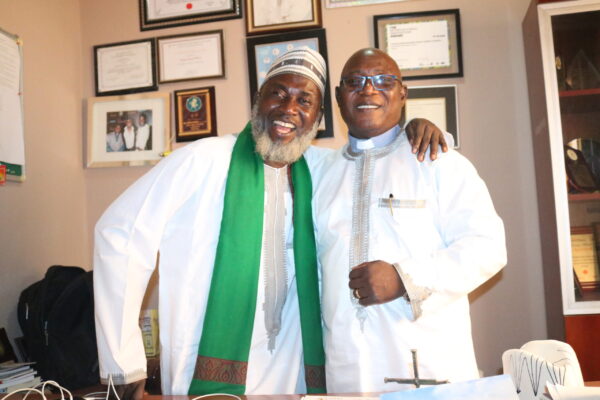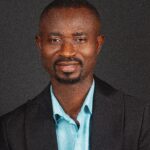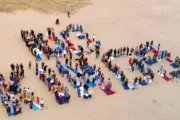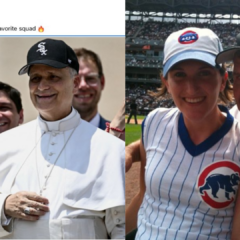This article was originally published in Premium Times, with the support of CRCC’s global project on engaged spirituality.
For the greater part of May 2, 2004, 40-year-old Amina Abubakar endured nine-month-old pregnancy pangs, what some call “false labour”.
It is the kind of cramp most pregnant women experience hours or shortly before the actual labour begins. So, counting her time and drawing from her past childbirth experience, Mrs Abubakar knew she could have her second baby that day and be free from the pains, thereafter.
Sure enough, her baby girl came out before night, but her body pain relief was overshadowed by even deeper grief because shortly after childbirth, her first child was killed.
“Some people just came and told me that my son had been killed,” she said, in a sorrow-filled tone, as though it all happened yesterday. “I cried and cried. It was the same day I delivered my daughter.”
Auwal Abubakar, her son, was murdered by a mob during a conflict between the two communities, Yelwa and Shendam, in central Nigeria’s Plateau State.
The ethno-religious conflict, which peaked after years of local political power struggle and protracted arguments over land rights, ended with many mass graves. One. Two. Three. As many as 16.
More than 600 Muslims were entombed in 13 mass graves, and over 400 Christians’ bodies buried in three.
“We would have prevented those deaths if only we had listened and dialogued,” said 70-year-old Abdullahi Abdullahi, a Muslim and a retired lawyer from Yelwa.
Yelwa town in southern Plateau is occupied by people of the Jarawa tribe who migrated to the area from northeast Nigeria’s Bauchi State more than 200 years ago. The town – with its majority Muslim population – is under the political control of Shendam Local Government Area, which is headquartered in Shendam town.
Shendam town plays host to several native ethnic groups, most of which are Christians. One of such groups is Goemai.
Goemai and Yelwa have lived harmoniously for over two centuries. Their relationship, however, got strained in 1996 after each laid strong claim to the ownership of Yelwa land.
While Goemai claims that the land belongs to them and that they benevolently gave it to the Jarawa people to settle in many years back when they migrated to the area, the Jarawa group claims that given their long stay on the land, they have become rightful owners with indigenous rights.
These claims and counterclaims further birthed arguments about whether or not the Jarawa people – tagged “settlers” and accused of being disrespectful to their hosts and the Long-Goemai (traditional paramount ruler for the entire Shendam Local Government Area) – should dominate local politics, which they were suspected of trying to achieve with their large population.
By the time the arguments turned violent, given the groups’ sharp Muslim-Christian religious divide, people were simply being identified by their religious affiliations and killed.
The fact that past government plus non-government efforts to settle the brawl failed as both towns maintained uncompromising positions and often resumed hostilities, made many fear that peaceful coexistence between them was elusive.
Surprisingly, however, for about 15 years, they have lived peacefully. And that was after they both signed a “peace affirmation” document, accepting to accommodate each other and to tackle future disagreements via dialogue.
For this, residents of both communities and former government officials have only one group to thank: The Interfaith Mediation Center (IMC).
“There is no way the peace that Plateau has come to achieve will ever be written without mentioning the Interfaith Mediation Center,” said Timothy Baba Parlong, a native of Shendam town and a former security adviser to former a Plateau State governor, Jonah Jang.
Who is behind IMC?
Formerly known as Muslim-Christian Youth Dialogue Forum, IMC is a nonprofit based in northwest Nigeria’s Kaduna State. While it also works to build peace among warring communities (that might be fighting on non-faith-based reasons) in Nigeria and beyond, it primarily combines the instruments of dialogue and mediation with religious verses that support forgiveness and love to help religiously-divided groups reconcile, build trust, and peacefully coexist.
It also tries to embed in youth, the virtues of religious tolerance in a country where faith-based violence is almost commonplace and one in which the jihadist group, Boko Haram, has killed over 30,000 people since 2009.
It does this by regularly organising radio and television programmes and public events during which the dangers of religious violence and the need for peaceful co-existence are discussed. For the same purpose, it has also established “peace clubs” in about 42 colleges and universities with over 10,000 members across Nigeria.
IMC was founded by two friends and colleagues, James Wuye and Muhammad Ashafa, a Pastor and an Imam, respectively.
Their religious approach to peace-building is easy to relate with because, apart from being spiritual leaders, they have both bitterly experienced the destructive bite of religious violence and intolerance, and their experiences were not passive. In fact, both were sworn enemies who led two opposing religious groups that hated, maimed and killed each other.
Sixty-year-old Wuye is an Assemblies of God (AG) pastor in Kaduna. The son of a former soldier, Wuye Movel, who was conscripted into the Nigeria Army during the country’s civil war (1967-1970), he grew up in the central Kaduna town of Tudun Nupawa.
During the 30-month war, his family lived in a military barracks in Kaduna where the daily military drills he observed cooked his interest to join the army, a dream he later fought hard to achieve but failed.
“To tell you the truth, after secondary school, I went to enlist in the military, but it was my height. I was told that I was not tall enough. Probably, you would have been talking to a military chaplain now,” he said.
His journey towards spiritual leadership started when he was an adolescent, a time he stopped following his parents to the Baptist Church and started attending the Assemblies of God Church where he grew prominently. He eventually occupied relevant positions within the leadership of the Christian Association of Nigeria (CAN), the umbrella body of Christian denominations in the country.
That included working as an assistant secretary of CAN in Kaduna and later as the head of a militia, formed by the youth wing of CAN – the Young Christian Association of Nigeria.
The militia was to defend Christians and churches against attacks during imagined future religious rifts between Muslims and Christians in Kaduna where faith-based violence has been responsible for the death of some 20,000 people since the 1980s.
During a 1992 Muslims-Christians conflict that started in the southern Kaduna town of Zango-Kataf and later spread to several other parts of the state and in which over 2,000 people were killed, Mr Wuye’s right hand was chopped off by Mr Ashafa’s (his co-founder at the IMC) boys while he was leading his militia to fight the Muslims.
Mr Wuye became a pastor after obtaining three certificates in theology; a diploma from AG’s Northern Theological Seminary in Kaduna, an undergraduate degree from Vision University, based in the U.S. (via its Kaduna satellite campus) and a master’s degree from the West Africa Christian University.
His colleague, Mr Ashafa, is the spiritual administrator of the Ashafa Central Mosque in Kaduna. The 61-year-old was born into a conservative Muslim family in northern Kaduna’s city of Zaria.
Mr Ashafa’s dream, right from childhood, was to become an imam and to preserve the traditions of Islam, a desire that was mostly inspired by his father, Abdul-Yakeen Ashafa, a 90-year-old-plus imam.
He spent most of his childhood and early adult life building his Islamic knowledge at a madrasa (a Quranic recitation school) attached to his father’s mosque. He later took a nine-month course in Arabic Studies at the International University of African in Sudan.
During the Zango-Kataf conflict, he led a Muslim militia called the “Defense League” to fight Christians. His militia, which comprised young men drawn from the National Council of Muslim Youths Organization (NACOMYO), was founded in 1987 for the primary purpose of defending Muslims and Mosques against attacks during faith-motivated conflicts in Kaduna.
Like Mr Wuye, the 1992 religious crisis did not leave Ashafa without personal losses. His spiritual mentor, Ahmed Tijani, and his two cousins were killed by Mr Wuye’s boys.
The pair started the IMC several years after the conflict ended through military intervention. Thanks to a friend of theirs, Idris Musa, a 70-year-old former technical officer at the Kaduna State Media Corporation, who first urged them, in 1995, to let go of their pains and work for peace.
The admonition was one they initially found hard to accept, but, further encouragement both received from their respective spiritual superiors and religious organisations gave them more reasons to forgive each other and to create space for partnership towards peacebuilding.
Now co-executive directors on Christian and Muslim matters respectively at the IMC, they have been able to broker peace between several groups and communities in several Nigerian states, including in Plateau, Taraba, Benue, Bornu, and Kaduna.
They worked with the state government in Kaduna to achieve the Kaduna State Peace Declaration (2002) that saw Muslim and Christian leaders commit to promoting peaceful co-existence and religious tolerance.
Part of the declaration reads: “According to our faiths, killing innocent lives in the names of God is a desecration of His Holy Name, and defames religions in the World.
“The violence that has occurred in Kaduna State is an evil that must be opposed by all people of good faith. We seek to live together as neighbors, respecting the integrity of each other’s historical and religious heritage. We call upon all to oppose incitement, hatred, and the misrepresentation of one another.”
Hitherto warring communities in countries like Iraq, Sri Lanka, Ethiopia, Sudan, and Libya have also benefited from their peace-building efforts that have brought them support from several local and international organisations, including the United States Institute of Peace (USIP), Christian Aid, Islamic Relief UK, British High Commission, UNDP, and the British Council.
About 40 staff and volunteers work at the Mediation House, a two-story building situated at Constitution Road in Kaduna city, which IMC built with support from the Kaduna State government and USAID.
The Yelwa-Shendam or Jarawa-Goemai conflict they were able to resolve remains one of their biggest achievements. When the IMC volunteered to deploy its conflict resolution and peacebuilding strategies to end the conflict, it was at the peak of it.
IMC’s strategy divided the mediation process into four parts. For several months, the organisation worked to identify the “faceless” human instigators of the conflict and the obvious causes – what they called “shuttle mediation”.
Next was intra-mediation where Christians at IMC, led by Mr Wuye, met with the Goemai people of Shendam at a neutral ground to discuss their grievances, while Mr Ashafa and his Muslim group did same with the Jarawa people of Yelwa.
The third part, called intermediation, saw both groups coming together to dialogue and to shift grounds where necessary.
The last phase, which was observed by local and international interests and media, was a 2005 occasion tagged “Peace Affirmation”. It included the public signing of a document in which both parties pledged to live peacefully and to use dialogue to resolve any future disagreements they may have.
For about 15 years running, both parties have kept their pledge, lending credence to IMC’s peacebuilding process that has earned the duo several local and international recognitions. These include three honorary doctorate degrees, two Nobel Peace Prize nominations, and multiple awards that include the Peacemaker in Action Award (2000), the Bremen Peace Award (2005), the Prize for Conflict Prevention (2009) and the Duetsche Africa-Preis (2013).
The burden of religious violence
With 93 million citizens – nearly half of the population – living in extreme poverty, Nigeria has the highest number of extremely poor people in the world, despite having vast mineral resources.
This pitiful situation is partly caused by regular religion-based destructions that – apart from the thousands of human casualties – have cost the country billions of dollars. This includes the activities of Boko Haram whose impact on agriculture has made Nigeria one of the top 10 countries facing food insecurity, according to a 2019 report by UN Food and Agriculture Organisation.
Efforts like that of Messrs Wuye and Ashafa, therefore, do not only add to prevent and possibly end conflict among religious groups, they also help to secure an environment that is healthy for everyday economic and social activities that are necessary for growth and development.
The activities of the duo have motivated more people to get into voluntary and selfless conflict resolution roles as personal contributions to further achieve lasting peace among religious groups in Nigeria.
“They pioneered peace-building in Kaduna and I decided to get into it to contribute my quota,” said Pastor Yohanna Buru who started the Kaduna-based Peace Revival and Reconciliation Foundation of Nigeria, a nonprofit that works to help Muslims and Christians accept each other and respect their religious, ethnic and social differences.
“I followed their activities and their effort to unite people and they made me see that [peace building] is an area of interest and I look up to them.”
Back in Yelwa, though Mrs Abubakar often remembers the gruesome killing of her son with deep sadness, she, however, feels grateful that her family and community have known peace for 15 years without fears of attacks and reprisals as was the case before the Yelwa-Shendam Peace Affirmation.
“At least, we now have some peace and we are happy,” she said.
Click here to read the article on premiumtimesng.com.
Emmanuel Innocent Eteng is a journalist fellow with the Spiritual Exemplars Project.







